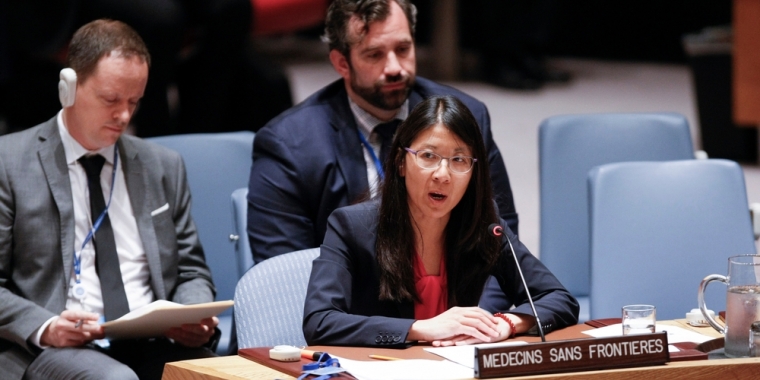“It is important that at one point you draw a line,” Dr. Joanne Liu, McGill alumna and international president of Médecins Sans Frontières (MSF), said at McGill’s Global Health Night on Nov. 1. “You will have to draw your own line as you go around this kind of world and […] see things that don’t make sense.”
Indeed, this is the mandate that MSF–Doctors Without Borders in English–operates on. MSF has been on the frontlines of every major health crisis since 1971, providing emergency medical care in areas affected by natural disasters or heavy conflict. They’re also known nowadays for their presence in areas of extreme poverty, where access to basic health care can be a challenge.
Over 90 per cent of MSF funding comes from private donors, allowing the organization some autonomy when it comes to setting up and choosing projects. This money goes toward running hospitals and clinics, performing surgeries, battling epidemics, carrying out vaccination campaigns, and operating feeding centres.
Many university students, including Markus Tralla, U2 International Development Studies and History, are attracted to the organization’s commitment to international medical relief.
Tralla serves as the Vice-President Campus Operations for McGill’s Friends of MSF, a chapter of a MSF support organization. Many in the group, including Tralla, hope to join an MSF mission in the future.
“MSF [is] so associated with going on missions [.…It’s] such an integral part of their mandate […] it motivates people who are interested on that front,” he explained. “[The other members and I] are very invested in the work.”
Drawn to principled health care, Kyong Ran van der Wal, a McGill PhD candidate in Family Medicine, began work for MSF as a young lawyer in 2000.
“It was a sense of adventure, as well,” van der Wal joked.
For seven years, van der Wal worked on various projects as a coordinator for MSF in Chad, the Democratic Republic of the Congo, Eritrea, Nigeria, Sri Lanka, and Sudan where she negotiated with warring factions in order to secure a place for MSF to stay and treat victims.
Van der Wal recalled the tiring six to twelve months she’d spend on a mission, working around the clock to make sure everything ran smoothly. MSF workers in politically unstable regions face the real dangers of conflict zones—sometimes risking their own lives in order to conduct their work.
One of MSF’s main goals is to remain politically neutral while treating patients, especially in areas of high conflict. Van der Wal admitted that staying completely impartial can be difficult in a highly politicized situation, especially in the case of the Darfur crisis, where she worked from 2004 to 2005. But, because MSF works on a need-based objective, van der Wal said it’s easier to judge who gets treated first.
Témoignage, French for witness, serves as a guiding principle of MSF’s work. MSF makes it a policy to speak out on the behalf of the people they assist in a neutral, non-political way. Van der Wal compared MSF’s vocalization of global issues with the strict confidentiality policies of Red Cross, noting that by speaking out, MSF can help Canadians understand foreign issues by bringing abusive and intolerable situations to light.








